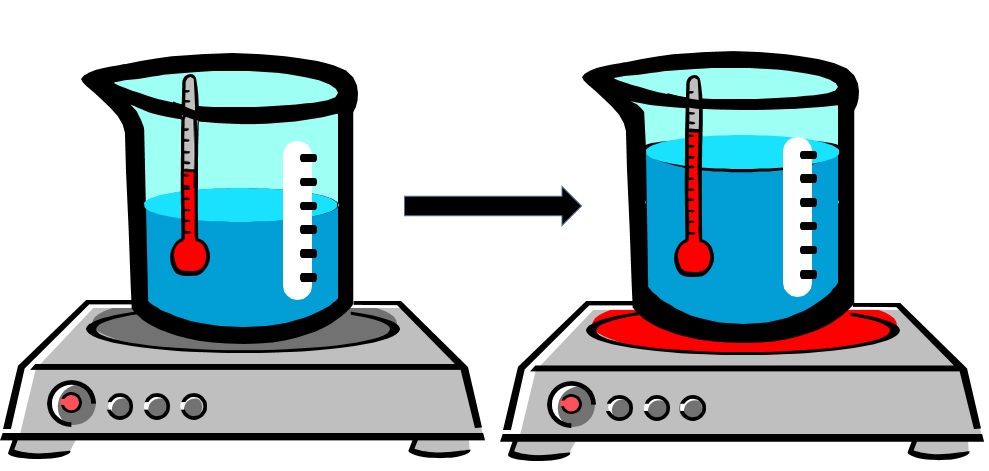Rising Seas
The topic of sea level rise has gained national media attention in the last several years. Throughout Earth’s geologic history, changes in glacial and ice sheet volume, tectonic activity, have played important roles in changing sea level both regionally and globally.
Earth has cooled and warmed, and as a result, the area and volume of the ice on Earth’s surface has increased and decreased. In a period of a colder climate, there is more ice covering the planet; hence sea level is lower. During interglacial periods, ice melts and sea level rises. However, the origin of the melting ice makes a difference.

Thermal Expansion. As water is heated, the
kinetic energy of the water molecules increases,
causing the molecules to vibrate more and move
apart.
When ice over land melts, it adds to the volume of water in the oceans, causing the level of the water to rise. The melting of sea ice does NOT contribute directly to a rise in water level, because the ice was already floating and displacing water. Archimedes’ Principle explains why. Water in the solid form (ice) is less dense than water, which causes it to float. Only about 10% of the ice floats above the surface, and when ice melts, the volume of the water that was displaced by the ice equals the melted ice or water. In other words, the change in volume exactly counterbalances the extra volume of the ice that was up above the water's surface.
Another cause of sea level rise is thermal expansion of the oceans. You have learned that the oceans have a greater heat capacity than land due to the high specific heat (and the amount of heat energy required to raise or lower the temperature of a gram of a substance by 1 ° Celsius) and the mass of water being heated.
The ocean’s high heat capacity allows it to absorb and store a large amount of heat energy with a small increase in temperature. This unique property of water has allowed the oceans to absorb as much as 90% of the additional energy added to the climate system since the mid-1900s. But as the ocean absorbs and stores more heat energy, the volume of ocean water expands. This referred to as thermal expansion. Hence, thermal expansion causes an increase in sea level.
While vulnerable coastal cities will not become inundated overnight, scientific data from numerous organizations show that sea levels globally are increasing. The causes of sea level rise are well known. The unknowns are how quickly sea level will rise and the risks and costs to people around the world.
To learn more, proceed to the Investigation.
How Does Sea Level in the Past Compare to Sea Level in the Future?

